Finding the best affordable counseling degree programs helps undergrads start their human service career off strong without mountains of loan debt. Cost-effective counseling degree programs keep tuition low so students have enough funds left to attend graduate school later. Counseling bachelor’s majors will introduce the impactful techniques therapists use to remedy client problems. Counselors are increasingly needed to enhance people’s lives physically, emotionally, socially, and spiritually. The U.S. News & World Report recognized behavioral disorder counselors for having America’s 50th best job. After all, the World Health Organization found mental illnesses affect one in four people globally. Among the most prevalent are depression, anxiety, dementia, PTSD, and bipolar disorder. According to the National Institutes of Health, 19.7 million Americans battle alcoholism and drug addiction. Getting a top-value counseling degree will lead to meaningful careers treating these conditions.
Our Methodology
First, Affordable Schools sought to guide undergrads toward the most affordable university for counseling degree options that teach therapeutic skills on budget. Our ranking began with an advanced search on the National Center for Education Statistics’ College Navigator database. We selected only four-year bachelor’s majors in counseling fields, including addiction treatment and pastoral ministry. Our results identified an initial pool of 25 U.S. institutions. We individually reviewed the average yearly tuition and fees at each one. We utilized the in-state attendance cost for full-time students taking one year of study. Public out-of-state prices were recorded solely for reference. Our team assigned each economical counseling degree one to five points based on the following affordability scale.
Points:
Under $7,500: 5 Points
$7,500 to $15,000: 3 Points
$15,001 and Up: 1 Point
Second, the AS Staff looked for affordable counseling degree programs that keep classes small. Average class size tells counseling majors how interactive their studies will be. Schools with low student:faculty ratios help learners form stronger bonds with their teachers. Experienced professors will be more readily available to counsel pupils about their grades, careers, and lives. Student:faculty ratios are also linked to more hands-on counseling opportunities, including clinical practicum and volunteer service. Close-knit cohorts learn more about each other and practice therapy strategies firsthand. Thus, we recorded the latest student:faculty ratio published by the College Navigator. Our researchers devised the following scale to reward counseling schools that facilitate student engagement.
Points:
10:1 or Less: 3 Points
11:1 to 15:1: 2 Points
Greater Than 15:1: 1 Point
Third, Affordable Schools picked graduation rate to be the last ranking factor. We used the College Navigator’s data on graduation for the 2018-19 academic year. We recorded the exact percentage of every 100 pupils who finished their bachelor’s successfully. Note graduation rates show the number of students who culminate their curriculum within six full years. Universities with higher graduation rates generally have the highest quality education. More students are satisfied enough with the academics, campus climate, and amenities that they remain there. In effect, more counseling majors gained enough credits to satisfactorily enter master’s licensure programs, so we gave each university one to three points for their graduation rate. We added up all points given, kept the 15 highest scorers, and placed the affordable colleges for counseling degree courses in descending order by tuition.
Points:
Less than 30 Percent: 1 Point
Between 30 and 50 Percent: 2 Points
More than 50 Percent: 3 Points
Ranking the 15 Best Affordable Counseling Degree Programs
15. Bob Jones University
Greenville, SC
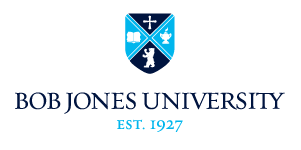
Total Points: 6
Program Website
Bob Jones University is a nonprofit, conservative Christian school founded in 1927. It enrolls 2,750 students from 43 countries. It hosts the CoRE Biblical Counseling, Psychology & Mental Illness Conference each February. In 2019, Bob Jones won the NCCAA Game Plan 4 Life Character Award. It also won the 2019 SCPA General Excellence Award for The Collegian. The U.S. News & World Report ranked BJU 34th in the South Region. BJU was named:
- America’s 15th top value by Educate to Career
- 57th best religious college on Niche
- 279th top private university in Forbes
The Division of Ministries grants an economical Biblical Counseling B.S. dedicated to Matthew 28:18-20 for reconciling lost persons with their Creator through God’s Word. Chaired by Dr. Greg Mazak, the top, 120-credit, SACS-accredited major splits into six tracks:
- Cross-Cultural Service
- Pastoral Care
- Women’s Ministry
- Youth Ministry
- Worship Leadership
- Apologetics
Undergrads can also:
- join Missions Advance
- serve from Bangladesh to Brazil
- intern at Shepherd’s Gate
- volunteer with Wilds Christian Camp
- attend the Student Leadership Seminar.
Degree Options:
Bachelor of Science in Biblical Counseling
In-State Tuition: $18,150
Out-of-State Tuition: $18,150
Student: Faculty Ratio: 13:1
Graduation Rate: 66 percent
14. Martin University
Indianapolis, IN
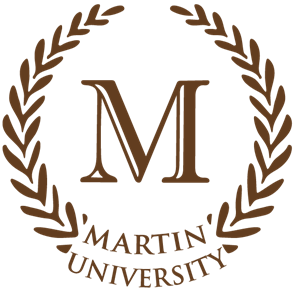
Total Points: 6
Program Website
Martin University is a private, adult-oriented nonprofit founded in 1977. It is Indiana’s only Predominantly Black Institution. In 2019, Martin won an American Association for Access Equity and Diversity Award. Martin University earned the 2016 Nina Mason Pulliam Charitable Trust Grant. College Factual ranked Martin 59th for religious studies and sixth for mental health services. It was named the Midwest’s 77th best bang for the buck in Washington Monthly. Indianapolis boasts the 27th lowest U.S. cost of living on Niche.
It is a member of the Consortium of Urban Education. The Undergraduate Division launched an inexpensive Addictions Counseling B.S. in 2016 to address current drug abuse epidemics. The low-cost 120-credit, HLC-accredited curriculum progresses through courses like Emancipatory Narratives and Crisis Intervention to a capstone project. Students can also:
- intern at Fairbanks Center
- earn the Dr. James Trippi Scholarship
- continue for the Community Psychology M.S.
- serve with Drug Free Marion County
- visit Africa.
Degree Options:
Bachelor of Science in Addictions Counseling
In-State Tuition: $13,200
Out-of-State Tuition: $13,200
Student: Faculty Ratio: 14:1
Graduation Rate: 4 percent
13. St. Cloud State University
St. Cloud, MN
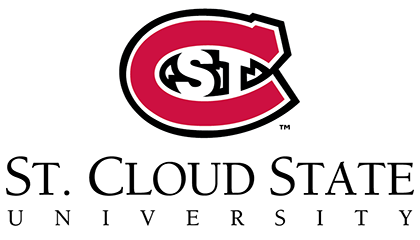
Total Points: 6
Program Website
Initiative, St. Cloud State University is a public, four-year AASCU member founded in 1869. It has 12,788 undergraduates and 200 affordable majors. It’s known for its Center of Health & Wellness Innovation’s “Hey, You Okay?” Initiative. In 2013, St. Cloud State won the ASCA Innovative Program of the Year Award. It also won a 2019 CIS Abroad Going Places Award of Excellence. The U.S. News & World Report ranked St. Cloud 118th in the Midwest. It was named:
- America’s 273rd best value in Forbes
- 295th top party school on Niche
- 24th best university by the Institute for International Education
The School of Health & Human Services offers an affordable B.S. in Chemical Dependency Counseling that fulfills Minnesota’s LADC certification for treating substance abuse. The inexpensive 120-credit, HLC-accredited path has 99 percent job placement after courses like Addiction Diagnosis and Family Psychodynamics. Students might also:
- engage in the Alcohol Diversion Program
- join Active Minds
- intern at the Mayo Clinic
- semester in Scotland
- continue for an M.S. in Counseling, and minor in Psychology.
Degree Options:
Bachelor of Science in Chemical Dependency Counseling
In-State Tuition: $8,265
Out-of-State Tuition: $16,499
Student: Faculty Ratio: 21:1
Graduation Rate: 44 percent
12. Metropolitan State University
St. Paul, MN
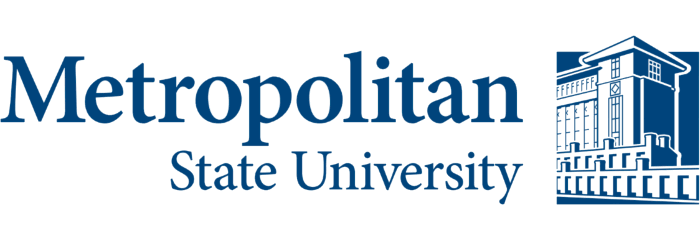
Total Points: 6
Program Website
Running its Domestic & Sexual Violence Crisis Hotline 24/7 in Founders Hall, Metropolitan State University is a public, coed MNSCU System constituent opened in 1971. It has 6,302 full-students and 46 majors. It operates a Domestic & Sexual Violence Crisis Hotline 24/7 in Founders Hall. In 2017, MSU earned the National Association for Addiction Professionals’ Emerging Leader Award. It won the 2018 IFO Advancement of Multicultural Issues Award. The U.S. News & World Report ranked MSU in the top 165 Midwest colleges. It was also named America’s 372nd most liberal school on Niche and 190th best master’s institution in Washington Monthly.
The College of Community & Public Affairs provides an inexpensive Alcohol and Drug Counseling BS. The program focuses on preventing overdoses through effective substance use treatment. The low-cost 120-credit, HLC-accredited sequence prepares for the Minnesota LAPC exam. Courses range from Case Management to Pharmacology. Undergrads may also:
- add the Violence Prevention Minor
- join Metro Students for Recovery
- intern at Hennepin County Medical Center
- volunteer with the Tubman Family Alliance.
Degree Options:
Bachelor of Science in Alcohol and Drug Counseling
In-State Tuition: $7,879
Out-of-State Tuition: $14,980
Student: Faculty Ratio: 17:1
Graduation Rate: 39 percent
11. College of St. Joseph
Rutland, VT

Total Points: 7
Program Website
The College of St. Joseph is a small private, nonprofit Roman Catholic ACCU member. It’s a Green Cross Academy of Traumatology accredited training site. It has 350 undergraduates Fighting Saints on a 117-acre campus. In 2019, CSJ won the Sisters of St. Joseph Humanitarian Award of Excellence. The U.S. News & World Report ranked CSJ among the top 47 Northern colleges. CSJ was also named America’s 344th best health professions program by College Factual and 429th top value on Niche.
The Psychology & Human Services Division offers the economical B.S. in Community Development and Counseling or B.S. in Alcohol and Substance Abuse Services. The 120-credit, NEASC-accredited programs integrate at least 240 practicum hours into courses like Human Growth and Abnormal Psychology. Learners can also:
- pledge Alpha Delta Omega
- join the Blue & White Society
- participate in Community Days
- shadow in the Counseling Services Center
- tour Japan.
Degree Options:
Bachelor of Science in Community Development and Counseling
Bachelor of Science in Alcohol and Substance Abuse Services
In-State Tuition: $18,520
Out-of-State Tuition: $18,520
Studen: Faculty Ratio: 9:1
Graduation Rate: 54 percent
10. Mid-Atlantic Christian University
Elizabeth City, NC

Total Points: 7
Program Website
Mid-Atlantic Christian University is a nonprofit, four-year NAACP member. It founded by the Restoration Movement in 1948. It has 218 undergraduates with a 10:1 student-faculty ratio. In 2019, MACU started the Melvin Styons Outstanding Counseling Student Award. MACU hada 2018 Elizabeth City Area Chamber of Commerce Teacher of the Year honoree. College Factual ranked Mid-Atlantic Christian 113rd for religious vocations and 357th for gender diversity. MACU was America’s 339th top value in The Economist and 14th best baccalaureate school in Washington Monthly.
Based on Proverbs 15:22, the Department of Marketplace Ministry has a low-cost B.A./B.S. programin Counseling and Psychology for undergrads called to assist mankind through struggles. The high-value, 120-credit, SACS-accredited program requires a Biblical Studies minor plus courses from Human Sexuality to Counseling Theories. Students can also:
- intern at Lindley Habilitation Services
- access Watson-Griffith Library
- celebrate Sneak Day
- gain ACA membership
- apply for the Presidential Scholarship
- join the Army ROTC.
Degree Options:
Bachelor of Arts in Counseling and Psychology
Bachelor of Science in Counseling and Psychology
In-State Tuition: $15,300
Out-of-State Tuition: $15,300
Student: Faculty Ratio: 10:1
Graduation Rate: 28 percent
9. Trinity Baptist College
Jacksonville, FL
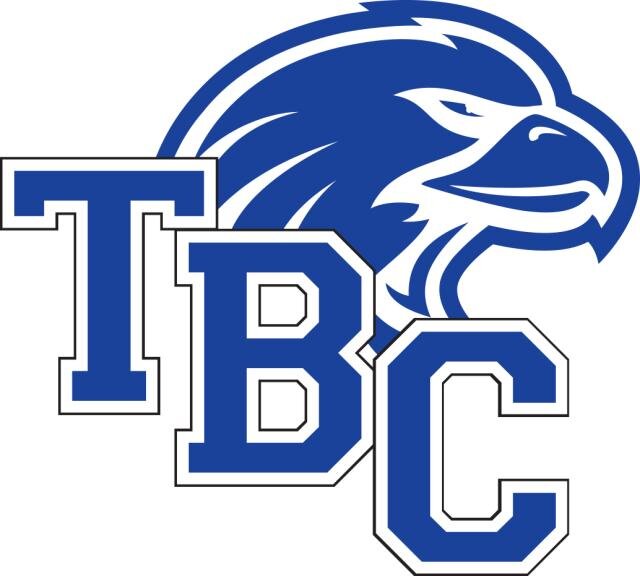
Total Points: 7
Program Website
Trinity Baptist College is a private, nonprofit Christian college with about students on its 148-acre Hammond Boulevard campus. Best Value Schools named Trinity Baptist College as Florida’s 29th top choice. Jacksonville is the 60th cheapest city on Niche.
The Christian Counseling Program offers a low-cost Bachelor of Science to sharpen empathetic problem-solving skills for ministry positions. The 120-credit, TRACS-accredited option accepts applications year-round. Undergrads can also:
- join the traveling Ministry Team
- be involved in various athletics
- participate in mission trips
- gain hands-on training in ministry, education and business.
DEGREE OPTIONS:
Bachelor
of Science in Christian Counseling
In-State Tuition: $13,130
Out-of-State Tuition: $13,130
Student-Faculty Ratio: 13:1
Graduation Rate: 34 percent
8. Indiana Wesleyan University
Marion, IN
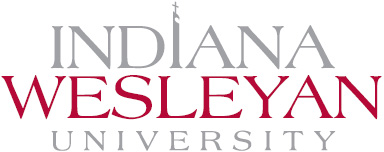
Total Points: 7
Program Website
Indiana Wesleyan University is the largest private, nonprofit CCCU member. It employs 1,070 faculty to serve 13,802 students. The university has collaborated with Fairbanks for the Adolescent Addiction, Learning and Recovery Project since 2013. In 2018, Indiana Wesleyan won the ISCA Exemplary Counselor Educator of the Year Award. IWU also received the Counselors for Social Justice’s 2017 Reese House Advocate of the Year Award. The U.S. News & World Report ranked Indiana Wesleyan 32nd in the Midwest. The university was named:
- America’s 216th top value in Money
- 81st safest campus on Niche
- 358th best university by Times Higher Education.
The Division of Behavioral Sciences offers a high-value B.S. in Addictions Counseling. The program is designed to bring hope to substance abuse patients. The inexpensive, 120-credit, HLC-accredited major requires 22 months of accelerated, seven-week courses. It also requires 350 practicum hours for LADC licensure. Students can also:
- volunteer with Grace House for Recovery
- join Reclaiming Eros
- attend God on the Green
- enter the John Wesley Honors College.
Degree Options:
Bachelor of Science in Addictions Counseling
In-State Tuition: $9,816
Out-of-State Tuition: $9,816
Student: Faculty Ratio: 14:1
Graduation Rate: 37 percent
7. University of South Dakota
Vermillion, SD
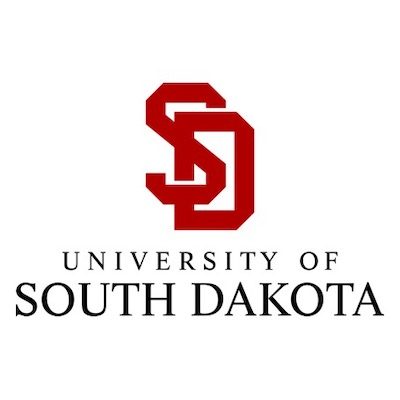
Total Points: 7
Program Website
The University of South Dakota is the Mount Rushmore State’s oldest public, coed flagship institution. It’s affiliated with 12 Rhodes Scholars. It has an enrollment of 7,435 undergraduates and 205 majors. It has been home to the Vermillion Prevention Coalition for Youth Binge Drinking since 2010. In 2017, South Dakota won the SDCA Gordon Poling Counseling Administrator Award. The University was also the 2012 SDAAPP Distinguished Addiction Service Award honoree. The U.S. News & World Report ranked South Dakota 226th nationwide. USD was named:
- America’s 298th best faculty on Niche
- 201st top research institute in Forbes
- 345th best value by Money.
The School of Health Sciences offers an inexpensive Addiction Studies B.S. It produces certified counselors ready to ethically tackle alcohol and drug dependence. The 120-credit, NASAC-accredited curriculum has 12 internship credits among classes like Addictive Family Systems and Native American Addiction. Majors might also:
- attend the CASPPA Conference
- practice at Lewis & Clark Behavioral Health
- join the Psychology Club
- earn the Mental Health Counseling Certificate.
Degree Options:
Bachelor of Science in Addiction Studies
In-State Tuition: $9,061
Out-of-State Tuition: $12,425
Student: Faculty Ratio: 16:1
Graduation Rate: 58 percent
6. University of Holy Cross
New Orleans, LA

Total Points: 8
Program Website
The University of Holy Cross is a nonprofit, coed Roman Catholic ACCU member. It was founded in 1916. It employs 104 faculty teaching 997 undergrads the 40-acre New Orleans campus. It is home to the state-of-the-art Thomas E. Chambers Counseling & Training Center. In 2017, UHC became an American Association of State Counseling Boards Life Membership Award recipient. The 2018 LCA Distinguished Professional Service Award finalist was a Holy Cross alumnus. Holy Cross ranked 22nd in the South on the U.S. News & World Report. UHC was also America’s 225th best value in Forbes and 158th top Catholic school on College Factual.
The Behavioral Sciences Department presents an economical B.S. in Addictions Counseling and a B.S. in Social Counseling. The low-cost, 120-credit, SACS-accredited pathways require 3.0 major GPAs in courses like Juvenile Delinquency and Diagnostic Interviewing. Students may also:
- pursue the Early Entry M.A.
- pledge Chi Sigma Iota
- join the Purple Key Society
- intern at the Townsend Outpatient Center
- volunteer with HandsOn New Orleans.
Degree Options:
Bachelor of Science in Addictions Counseling
Bachelor of Science in Social Counseling
In-State Tuition: $14,180
Out-of-State Tuition: $14,180
Student: Faculty Ratio: 10:1
Graduation Rate: 49 percent
5. Southern University at New Orleans
New Orleans, LA

Total Points: 8
Program Website
Southern University at New Orleans is a public, selective historically Black TMCF member. It has 2,356 students on its 17-acre “Big Easy” campus. It was sponsored by the Jed Foundation in 2018 for its Counseling Center’s ULifeline Project. In 2018, the university was an ACA Tomorrow’s Counselors Award finalist. It received the Southern States Communication Association’s 2010 Dwight L. Freshley Award. The U.S. News & World Report ranked it the 55th best HBCU nationally. SUNO was declared:
- America’s 353rd best location on Niche
- 225th best human sciences program on College Factual
- 121st top value in Washington Monthly
Adjacent to Pontchartrain Park, the College of Arts & Sciences offers an affordable B.S. in Addictive Behaviors Counseling and Prevention that meets Louisiana certification requirements for drug treatment. The 120-credit, SACS-accredited sequence spans subjects from Sociology to Clinical Psychopharmacology. Undergrads can also:
- intern at Odyssey House
- join Phi Beta Sigma
- participate in the Psychology Mentoring Program
- attend the SUAF Leadership Summit
- explore Italy.
Degree Options:
Bachelor of Science in Addictive Behaviors Counseling and Prevention
In-State Tuition: $7,033
Out-of-State Tuition: $15,934
Student: Faculty Ratio: 20:1
Graduation Rate: 25 percent
4. South Florida Bible College and Theological Seminary
Deerfield Beach, FL
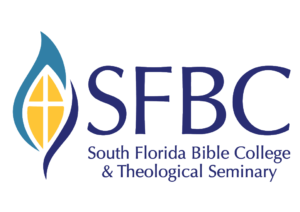
Total Points: 8
Program Website
South Florida Bible College is a private, nonprofit seminary opened by the Christian Love Fellowship. It enrolls 545 students at its five-acre Deerfield Beach campus. It has partnered with Faith Farm Ministries for its Addiction Recovery Credit Program since 2014. In 2018, SFBC earned a Strike Force 421 Grant with Living Water Counseling Center. It was a 2016 IBPA Benjamin Franklin Silver Award finalist. College Factual ranked SFBC 145th for clinical counseling and 200th for theology courses. AffordableColleges.com featured SFBC among the 50 best Biblical values. Christian Universities Online named SFBC one of the 50 most beautiful.
The Division of Behavioral Sciences offers a low-cost B.A. in Christian Counseling online or in Deerfield Beach for Christian servant leaders. The inexpensive, 120-credit, ABHE-accredited pathway splits into two specializations:
- Marriage & Family Counseling
- Clinical Counseling.
Individuals might also:
- transfer from the A.A. in Psychology
- earn the First Responders Scholarship
- intern at Holtz Children’s Hospital
- run for Student Council
- utilize the Counseling Services Center.
Degree Options:
Bachelor of Arts in Christian Counseling
In-State Tuition: $6,900
Out-of-State Tuition: $6,900
Student: Faculty Ratio: 9:1
Graduation Rate: N/A
3. Western New Mexico University
Silver City, NM

Total Points: 8
Program Website
Western New Mexico University is a public, Hispanic-serving LSC member. It gifts $10.22 million to aid 3,500 students from 18 countries. It has 70 affordable programs at an 83-acre Silver City campus. In 2019, WNMU won the Heritage Preservation Award for Fleming Hall. It won the 2017 Zora Neale Hurston/Richard Wright Legacy Award. Washington Monthly ranked Western New Mexico University 596th overall. It was named America’s 192nd most popular human services program by College Factual and 337th best faculty on Niche.
The School of Behavioral Sciences offers an affordable B.A./B.S. in Chemical Dependency Counseling at Phelps Dodge Hall or online. The 120-credit program fulfills NAADAC standards with 300 practicum hours in additions to courses like Dual Diagnosis and Social Problems. Students may also:
- volunteer with the SpiritHorse Freedom Riders
- pursue the Psychology Certificate
- join Circle K International
- job shadow at Border Area Mental Health Services.
Degree Options:
Bachelor of Arts in Chemical Dependency Counseling
Bachelor of Science in Chemical Dependency Counseling
In-State Tuition: $6,066
Out-of-State Tuition: $13,539
Student: Faculty Ratio: 15:1
Graduation Rate: 26 percent
2. Minot State University
Minot, ND

Total Points: 9
Program Website
Minot State University is a public, coed NSIC member. It enrolls 1,979 full-time and 936 part-time students from 46 states with 70 percent retention. It was selected to participate in the Connect Model Suicide Prevention Training Program in 2018. It was the NDCA Friend of Counseling Award recipient. Minot State University earned a 2018 North Dakota INBRE Institutional Development Award. The U.S. News & World Report ranked it 248th for undergraduate teaching. MSU was named:
- America’s 246th top public school on Niche
- 398th top value by WalletHub
- 270th best social service program on College Factual.
The College of Education & Health Sciences offers the inexpensive B.S. Degree in Addiction Studies, focused on curbing illicit or prescribed drug misuse.The economical, 120-credit, NASAC-accredited program couples courses like Evolutionary Psychology and Behavior Modification with nine-month practica for certification. Students might also:
- join Addiction Studies Club
- intern at Trinity Health
- engage in Slaaten Learning Center
- serve in Costa Rica
- enter the HOPES Program.
Degree Options:
Bachelor of Science in Addiction Studies
In-State Tuition: $7,064
Out-of-State Tuition: $7,064
Student: Faculty Ratio: 12:1
Graduation Rate: 46 percent
1. Hobe Sound Bible College
Hobe Sound, FL
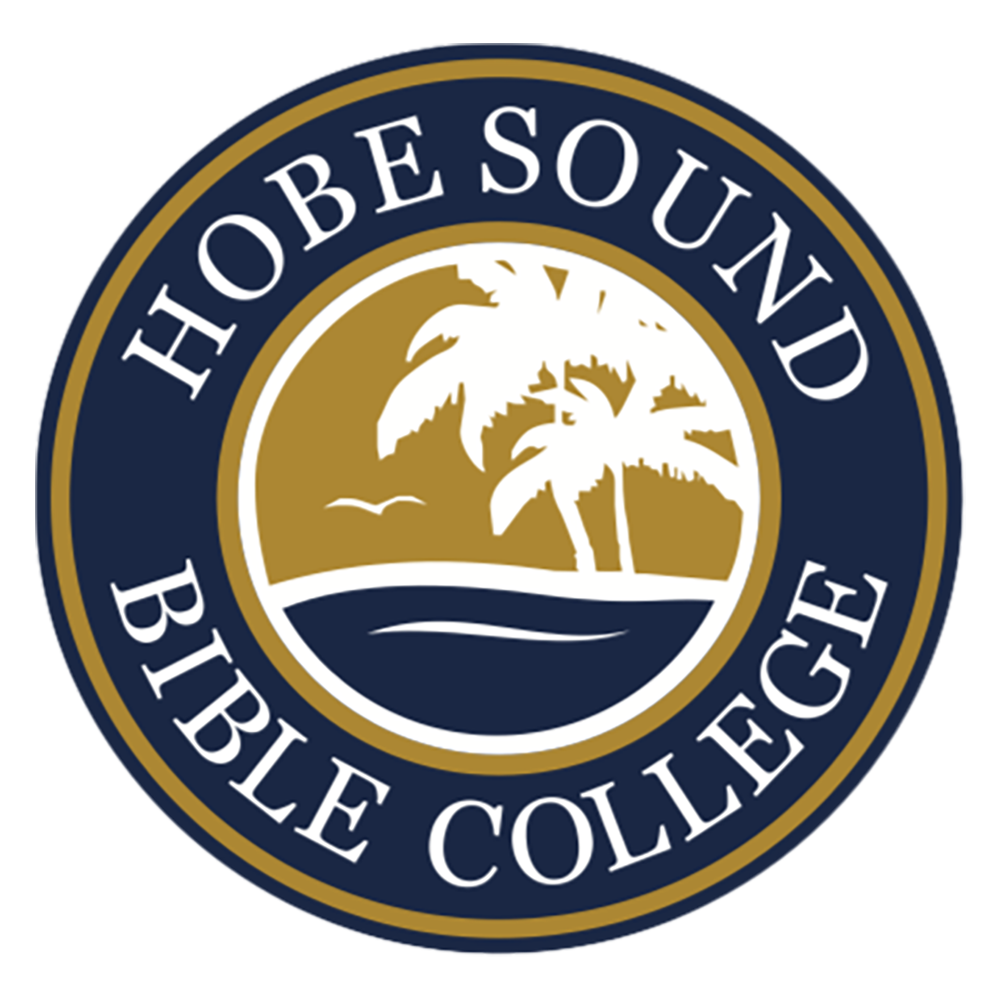
Total Points: 9
Program Website
Hobe Sound Bible College is a private, four-year CCCU member opened in 1960. It enrolls 233 students from 12 states in the Port St. Lucie Metro. It belongs to the Focus on the Family’s Christian Counselors Network. In 2010, HSBC won the Virgil A. Mitchell Excellence in Pastoral Ministry Award. Hobe Sound won Immokalee Foundation Taking Stock in Children Grant in 2017. College Factual ranked HSBC 159th for gender diversity and 64th for Biblical studies majors. Great Value Colleges placed it 14th for the Sunshine State with an ADE Tuition Scholarship.
Dedicated to James 1:19, the Professional Studies Department offers a B.A. in Counseling that produces board-certified Biblical counselors for healing hurts through spiritual intervention. The inexpensive, 120-credit, ABHE-accredited option provides seven minors:
- education
- music
- child evangelism
- TESOL
- aviation
- pastoral ministries
- intercultural studies
Students can also:
- select the A.A. in Counseling
- intern at Port St. Lucie Hospital
- mentor at Summer Breeze Camp
- join the Ministry Team
- travel to Jamaica.
Degree Options:
Bachelor of Arts in Counseling
In-State Tuition: $6,595
Out-of-State Tuition: $6,595
Student-Faculty Ratio: 11:1
Graduation Rate: 50 percent
What Career Options are Available with a Best-Value Counseling Degree?
Earning an affordable degree in counseling could be a stepping stone into master’s programs or careers improving the well-being of diverse clients. For example, substance abuse counselors help individuals cope with withdrawal and recovery after long-term alcohol or drug addiction. Behavioral disorder counselors develop custom treatment plans to minimize the effects of conditions like ADHD or OCD. Vocational counselors conduct aptitude testing to connect job searchers to professions based on their skills and interests. Pastoral counselors strive to make clients happier and healthier by enriching their spiritual beliefs. Psychiatric technicians care for and monitor mentally ill patients at inpatient centers to ensure their safety. Assistant behavior analysts work under BCBA supervision to help adults or children remedy problematic behaviors. Other potential careers include:
- health educator
- human service assistant
- college admission counselor
- correctional treatment specialist
- case manager.
How Much Do Affordable Counseling Degree Graduates Make?
Picking affordable colleges for counseling degree majors is suggested because entry-level community services jobs frequently have modest earning potential. In May 2018, CNN reported that the starting salary for bachelor’s graduates was $50,390. However, the Department of Labor listed a median annual wage of $44,630 for addiction and behavioral disorder counselors. Mental health counselors reaped average salaries of $46,050. Guidance and school counselors made a mean salary of $60,160. Community health workers were compensated $43,480 on average. Social service managers had median pay of $65,320 each year. Psychiatric technicians reported mean annual income of $37,760. Correctional treatment specialists had wages of $34,630 to $94,770. Social workers brought home average revenue of $49,470. Rehabilitation counselors earned a median $35,630 wage. Salary.com documented mean pay of $49,100 for pastoral counselors and $71,700 for employee assistance counselors.
Is the Job Outlook Good After Low-Cost Counseling Degree Programs?
Attending an affordable university for counseling degree studies can lead to graduate school or gainful employment in a growing human services field. Open Minds reports that the United States has a $195.6 billion mental health market rife with opportunities. The Bureau of Labor Statistics predicts that employment of addiction and behavioral disorder counselors will increase quickly by 23 percent for 60,300 new positions. Before 2026, there will be 13 percent more school and career counseling jobs available. Marriage and family therapists can expect a 23 percent increase this decade. Demand for community health workers will rise by 16 percent. Overall hiring of social workers will jump up 16 percent to 791,800 total employment. Openings for psychiatric technicians are increasing by 6 percent. Social service managers have a bright 10-year outlook of 18 percent growth. Now’s an excellent time to choose from these best affordable counseling degree programs and make a difference in people’s lives.
AS Staff
This concludes our ranking of the top 15 best affordable counseling degree programs (bachelor’s).
Other Rankings of Interest:
25 Online Bachelor’s Colleges Under $10K Net Price
25 Online Public Bachelor’s Colleges with the Least Four-Year Tuition Change
25 Most Affordable Private Nonprofit Colleges Offering Online Bachelor’s Degrees
25 Most Affordable Bachelor’s-Granting Historically Black Colleges/Universities
15 Best Affordable Environmental Studies Degree Programs (Bachelor’s)
15 Best Affordable Healthcare Management Degrees Programs (Bachelor’s)
15 Best Affordable Forensic Science Degree Programs (Bachelor’s)
15 Best Affordable Biology, Biochemistry, Zoology Degree Programs (Bachelor’s)

 The Best Colleges
The Best Colleges The Lowest Costs
The Lowest Costs The Highest Returns
The Highest Returns